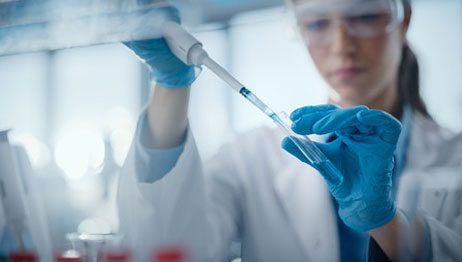Is ISR Needed For Biomarker Assays?
Incurred sample reanalysis (ISR) is a well-established measure for the reproducibility of pharmacokinetic (PK) assays and commonly conducted in regulated studies. ISR was established in PK assays to address sources irreproducibility observed in study data that could be attributed to back conversion of unstable metabolites, matrix effects, recovery issues, sample inhomogeneity and undocumented technical errors. In addition, the value of ISR is notably in the fact that validation of PK assays requires the use of spiked samples that are used to characterize the assay, whereas these spiked samples may not adequately mimic study samples (incurred samples) and thus the necessity for establishing in-study ISR.
After the inclusion of biomarkers in the FDA 2018 BMV guidance, it was speculated that many may interpret the guidance to include the applicability of ISR for biomarker assays. This thought was corroborated after a survey conducted by the AAPS Biomarker and Precision Medicine Community in September 2020 revealed that about 50% of the respondents from the industry across pharma, biotech and CROs were performing ISR for biomarker assays for varying reasons. These results were surprising, and sparked discussion on the rationale for conducting ISR for biomarker assays and questioning the utility of this assessment in regulated studies.
As this clearly remains a point of contention in the industry, the AAPS group sought out to identify other ways to inform biomarker assay reproducibility outside of conducting a formal ISR assessment. These approaches are common biomarker-related assessments and answer many questions about biomarker assay reproducibility with greater value than what a traditional ISR assessment would address. The biomarker-relevant assessments include pre-study and in-study parallelism, biomarker sample stability and endogenous QC analysis.
Endogenous QC (eQCs) are samples from the disease or study population that contain varying levels of the endogenous analyte that span the range of expected sample concentrations in the study. The eQCs are assayed with each biomarker assay run and are a great tool that allows for trending and monitoring sample response over time, thus informing on assay reproducibility.
Parallelism is a hallmark assessment in biomarker assays and is important for demonstrating the equivalence of endogenous analyte in biological sample to the recombinant analyte that is used to prepare calibrators in surrogate matrix. The equivalence demonstrates comparability of the assay reagents to bind the recombinant and endogenous analytes similarly and proves the assay is suitable for sample analysis. Parallelism is conducted pre-study, in validation and also has value of being conducted in-study if needed. Parallelism has the ability to address sample heterogeneity as well as unexpected sample matrix effects by demonstrating that as the sample is diluted out, non-specific and low affinity drug or metabolite binding of the biomarker should fall apart.
Biomarker stability is another assessment that can demonstrate assay reproducibility by demonstrating reproducibility by repeat analysis of the eQC prepared from incurred samples. In addition, in cases where unexpected data that could be an outcome of technical or operator error, it could be best served by performing an investigation and not as part of formal or traditional ISR to address these situations.
It is important for scientists to understand why ISR assessments are of value for PK assays and can address sources of assay irreproducibility. It is equally important for scientists to understand that biomarker assays are different from PK assays. Ultimately, scientists should always consider their specific biomarker application and the suggested approaches for the assessment of reproducibility of the biomarker assay in terms that are specific to the biomarker studied and how the data will be used.
Contact BioAgilytix for Biomarker Solutions
BioAgilytix offers a robust and ever-growing menu of over 600 biomarker assays, including more than 120 validated biomarker assays and over 100 new biomarkers that have been recently added! Whether we leverage biomarkers from this extensive menu to streamline the time and cost of your development efforts, or collaborate to develop and validate the novel assays you need, we will help you identify a robust, right-fit biomarker solution.
References:
- Hays A, Amaravadi L, Fernandez-Metzler C, King L, Mathews J, Ni Y, Quadrini K, Tinder C, Vazvaei F, Zeng J. (2022) Is Incurred Sample Reanalysis (ISR) Applicable in Biomarker Assays? AAPS J. 24(3):65. doi: 10.1208/s12248-022-00708-y.
https://rdcu.be/cMVJ8
